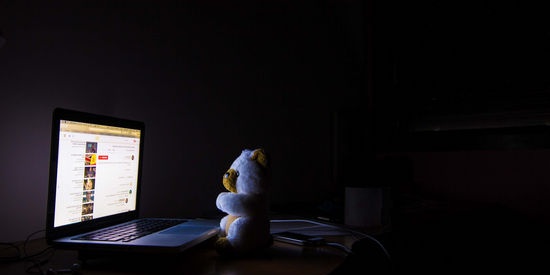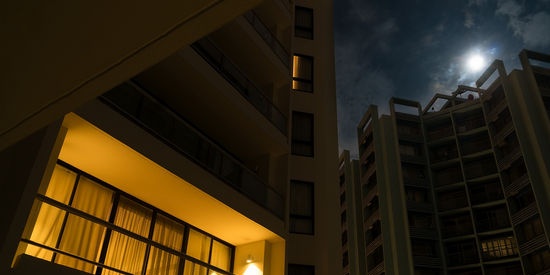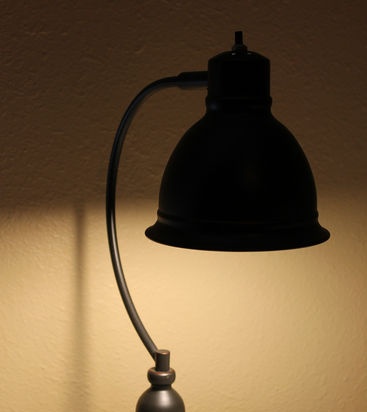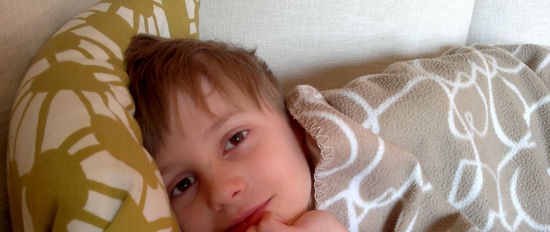Mechanisms of insomnia |
|
Constantly unsatisfied desire, a heavy burden of fear - all this poisons the life of those who suffer from insomnia. The writer Alexander Green, who gave a brilliant description of insomnia, probably had personal experience - without experiencing it on oneself, it is difficult to imagine what it is. Here is the reasoning of his hero: “For a long time I have not known the happiness of fatigue - a deep and calm sleep. While the day was shining, I thought about the coming of night with the caution of a man carrying a vessel full of water, trying not to get irritated, almost certain that this time exhaustion would overcome the painful vivacity of consciousness. But, as soon as evening fell, the fear of NOT SLEEPING took possession of me with the force of an obsessive thought, and I languished, calling for the onset of night to find out if I would finally fall asleep. However, the closer to midnight, the more clearly my senses convinced me of their unnatural sharpening; an anxious revival, like the glitter of magnesium in the midst of darkness, twisted my nervous force into a resounding, tight string at the slightest impression, and I seemed to wake up from day to night, with a long journey inside a restless heart. The fatigue was dissipating, his eyes stung, as from dry sand; the beginning of any thought immediately developed in all the complexity of reflections, and the coming long inactive hours, full of memories, were already indignant powerlessly, as an obligatory and fruitless work that could not be avoided. As soon as I could, I invoked sleep. Towards the morning, with my body as if filled with hot water, I sucked in the deceptive presence of sleep by artificial yawning, but, as I closed my eyes, I experienced the same thing that we experience when we needlessly close our eyes during the day - the senselessness of this situation. I tried all the means: examining the points of the wall, counting, immobility, repeating one phrase - and to no avail. ".
This happens, of course, in different people in different ways. The easiest way is to imagine why someone who suffers from pain, such as a toothache, or an injury, is not sleeping. Sleep mechanisms are not disturbed, relations with sleep are normal, but pain as a signal of danger, trouble in the body does not allow one to relax, requires action, a fight against what causes it. It is difficult to fall asleep not only when any disease causes pain, but also at high temperatures, in general, any pronounced symptoms of any disease. Such insomnia will disappear as soon as the cause that causes it disappears. A serious illness will pass, and the protective insomnia will be replaced by a long, healing sleep of the convalescent. Nature itself will more than return what it took away in its time. Severe insomnia can occur with diseases of the central nervous system, tumors, infections - unfortunately, there are a lot of all sorts of misfortunes that a "common" person, without medical education, is better off not knowing at all. It is not at all difficult to understand the origin of insomnia caused by a change in timing. Two options are possible here: a fairly fast move from one time zone to another and a sharp, violent change in the usual routine. Moving from Vladivostok to Minsk, you took a plane. It is very comfortable. All the chores fit into one day, and the very next day after the move, it would seem, you can join the business rhythm in a new place. But it turns out that this is not at all so easy to do.In the evening you cannot fall asleep, at night you sleep in fits and starts, during the day you walk with a heavy head, literally falling asleep on the go. What's the matter? Do you feel sick? In general, yes. It can be considered that this is a disease caused by a gap between the local circadian rhythm and your own, established according to Vladivostok time. Therefore, when everything in Minsk unambiguously tells you that the day is already over, the internal clock of your body stubbornly shows the beginning of the day and requires stimulation of all systems. Such a contradiction can arise when flying from one time zone to another with a time change of four hours or more. The same will happen if you "Twist" your regime "inside out": you will not sleep several nights in a row, getting enough sleep during the day. It will not be possible to return to a normal lifestyle immediately, and then only by forcing yourself to get up at a normal time. Otherwise, the biorhythm shift that has begun cannot be stopped.
If a certain place is not assigned to sleep in the daily routine, it ceases to be an obligatory daily component of normal life. The unceremonious treatment of sleep gradually destroys the stereotype, a person who has lost the habit of going to bed and getting up at the same time can easily come to insomnia. A person does not sleep well at night, falls asleep properly only in the morning. He suffers all week and only on Saturday decides to reward himself for all sleepless nights, sleeps until ten, until eleven in the morning, or even until noon. And the next night is even worse, falling asleep comes even later, it is even more painful. The entire diurnal cycle shifts, the maximum activity falls during the night hours. The next week, on the morning of the day off, the man, rather exhausted, again allows himself to sleep in the hunt. This creates a vicious circle from which it is impossible to get out. The situation is addictive. There is only one way to deal with this - no matter how hard the night is, you still get up as early as possible, not let yourself bloom in the morning. Better to go to bed in the evening at 9, even at 8 o'clock. This will help destroy the existing system and restore the normal biorhythm. When should you get up in the morning? Of course, everyone has their own routine, their own rhythm of the day, dictated by work, family responsibilities, the custom of spending leisure hours in one way or another. But still, we can confidently say that the habit of sleeping for a long time, lying in bed in the morning for many becomes the first step to insomnia. In principle, a healthy normal person should get up early: the earlier, the better. Also in "Teachings" Prince Vladmir Monomakh said: “... Let the sun not catch you in bed. So did my blessed father, and all are good men and perfect "... That's how our ancestors solved the first issue of the daily routine - the issue of getting up, getting up. For them, this option seemed natural. In 1818, Gabriel Uspensky, professor of history, statistics and geography, wrote in his book on Russian antiquities:
The upper classes in Russia abandoned the habit of getting up early (remember, for example, Eugene Onegin), but the people adhered to the old way of life for a long time. A curious case was described in one of the medical manuals of the beginning of our century: "... The patient fell into a heavy, intoxicating sleep, so that it was difficult to wake him up before eight or ten in the morning.". And this was considered a disease requiring treatment! It is further said that after the treatment, the patient "began to wake up as before at six in the morning." Are there many people among us who would think to see a doctor if they cannot wake up before eight in the morning? Yes, many of the customs of hoary antiquity, the habits of great-grandfathers were not bad at all, had a rational basis. As, for example, and the custom to get up and go to bed with the summer sun. Another reason that interferes with normal sleep can be breathing problems. For some reason, it is believed that deafening snoring is a sign of a healthy, almost heroic sleep. Is this fair? Only partly. Indeed, a deeply sleeping person often snores. If one of the readers tried to fall asleep to the stormy accompaniment of a snoring neighbor in a hotel room, then it will not be difficult for him to remember that the snoring is periodically interrupted by some gurgling, grunting or hiccuping sounds. The sleeper seems to be choking on his snoring. So it is: it chokes, suffocates, having lost the opportunity to take another breath due to overly relaxed muscles of the larynx, pharynx or tongue. Depending on the features of the anatomical structure of the neck, oral cavity and upper respiratory tract, muscle relaxation leads to various options for blocking the airways; most often the “culprit” is the sinking language. He can cover his windpipe partially - then snoring is heard - or completely - then the sleeping person, suffocated, wakes up (usually not completely) and immediately falls asleep again. Some people literally choke themselves dozens of times a night. It's easy to imagine what it would be like to get enough sleep and feel refreshed - after being choked all night! Other possible causes of insomnia? Here is a real life example. My neighbor, a pensioner, monitors her health, fulfills doctors' appointments, tries to eat rationally. At the same time, she often, for two or three days or more, is not shown on the street. "Ah, today the weather is unimportant, cloudy, rain is possible, you shouldn't go out." She never walks, never goes to a beautiful park, which is fifteen minutes away. She only looks into the nearest grocery stores, that's her whole route. At the same time, she still complains that she is getting fat, has acquired shortness of breath and does not sleep well (she has difficulty falling asleep). I would like to know what would you advise her? I will add only one thing - a year ago, the old woman went to her daughter "Walk" little grandson. Then she got tired, grumbled, but she felt much better, fell asleep without any sleeping pills. I think that the conclusion from this story suggests itself.
Regular walking in the open air, exercising, playing sports - no need to prove how important all this is to establish normal sleep.Of course, not everyone can train on the football field of the stadium, but you just need to walk one or two stops after work, play badminton in the courtyard, in the park (in summer) or leisurely go skiing (in winter) on weekends. It is physical culture and sports that develop the capabilities of our body, training its adaptive systems. It is believed that "the pillow does not spin in their heads" for those whose conscience is clear. Of course, you should not take this too literally: they say, you are not sleeping, it means you are a thief and a scoundrel. Practically, “as they do not live, they do not sleep” for those who do not cope well with life's problems and because of this are prone to stress. It is chronic stress - the main cause of neuroses - that most often leads to insomnia in healthy people. Insomnia creeps up to most of its victims imperceptibly, and just when every year there is less strength, more worries, opportunities begin to lag behind needs, and the word "must" sounds more and more often, louder, more threatening. In such cases, what can be called a sleep ritual, a bedtime ritual, takes on special significance. Usually it consists of the sum of the little things of everyday life that have become familiar, grown together with a person, without which he is not at ease. Someone must read before going to bed, someone should cover themselves with their heads, press their backs against the wall, lay a pillow in a special way, tuck a blanket in a special way. For most people, it is important to be able to sleep in a certain position: only on the right side, on the back, etc. One needs the window to be at the head of the bed, the other, to the right side. What can you do, we are all gradually overgrown with habits, they serve as a kind of protective shell for us. The familiar environment before going to bed, calming, lulling, helps you fall asleep faster, rest better, and recover. Of course, the ritual of sleep becomes so important when the mechanisms of sleep, albeit not explicitly, are already disrupted. One elderly Muscovite, having lived for fifty years on the second floor of an old house on the Garden Ring, got so used to the constant noise under the window that he could not sleep in his new and very quiet apartment. Noise under the windows became an obligatory component of his sleep ritual. These are the paradoxical situations!
It is very important, especially over the years, to treat carefully and culturally the mechanism of sleep, which is easy to disrupt, but not so easy to return to normal. We should cherish this wonderful ability, which helps to restore the physical and spiritual forces of the body, which nature has endowed us with, to protect and preserve it in every possible way. We must not forget that without healthy sleep there is no and there will be no health. P.P.Sokolov - Victory over insomnia |
| Gastritis | Ischemic heart disease and other "diseases of the century" |
|---|
New recipes
 A healthy person who has everything they need to live but is sleep deprived cannot feel fulfilled until sleep returns to him. The torment of the inability to achieve the desired dream can only be compared with the torment of lovers doomed to parting.
A healthy person who has everything they need to live but is sleep deprived cannot feel fulfilled until sleep returns to him. The torment of the inability to achieve the desired dream can only be compared with the torment of lovers doomed to parting. But why does this happen? How does something that is so natural and simple for others become inaccessible?
But why does this happen? How does something that is so natural and simple for others become inaccessible? In the most crucial or happiest moments of our lives, we do not sleep at night. Who sleeps on the last night before completing important work? Who sleeps on New Year's Eve? Sometimes we are awake simply because we want to spend this time on something else. Reducing sleep time means extra hours spent with friends, extra pages of a book you read, additional knowledge, done things that you usually don't have time for. A person, deliberately not getting enough sleep, prides himself on his ability not to dissolve, to give a minimum of time to sleep. Yes, he is proud, but only until the unwillingness to sleep turns into the inability to fall asleep. Saving time by sleeping turns into insomnia just when sleep is most needed.
In the most crucial or happiest moments of our lives, we do not sleep at night. Who sleeps on the last night before completing important work? Who sleeps on New Year's Eve? Sometimes we are awake simply because we want to spend this time on something else. Reducing sleep time means extra hours spent with friends, extra pages of a book you read, additional knowledge, done things that you usually don't have time for. A person, deliberately not getting enough sleep, prides himself on his ability not to dissolve, to give a minimum of time to sleep. Yes, he is proud, but only until the unwillingness to sleep turns into the inability to fall asleep. Saving time by sleeping turns into insomnia just when sleep is most needed. “... Vladimir II, informing his children about the custom of his father and all virtuous husbands, also advises them to do so, so that before the rising of the sun to get up and with the morning glorification of God anticipate the day's affairs. This custom is to divide the daily time in two between work and rest, i.e.so that (meaning summer time) to go to bed immediately after the setting of the sun, and to get up with its ascent, was kept for a long time in Russia and among noble people. The bourgeoisie of many cities and villagers still keep it; but many turn the day into night, that is, go to bed before the rising of the sun, and get up at noon. "... So, as you can see, the problems of the competent formation of the daily routine existed already at the beginning of the 19th century.
“... Vladimir II, informing his children about the custom of his father and all virtuous husbands, also advises them to do so, so that before the rising of the sun to get up and with the morning glorification of God anticipate the day's affairs. This custom is to divide the daily time in two between work and rest, i.e.so that (meaning summer time) to go to bed immediately after the setting of the sun, and to get up with its ascent, was kept for a long time in Russia and among noble people. The bourgeoisie of many cities and villagers still keep it; but many turn the day into night, that is, go to bed before the rising of the sun, and get up at noon. "... So, as you can see, the problems of the competent formation of the daily routine existed already at the beginning of the 19th century. There are people who, even without hurrying anywhere, still will not walk, but will wait for a bus or trolleybus to pass one stop. Some explain it this way: "I feel sorry for myself." It seems that in fact they just do not spare themselves, depriving the body of the necessary physical activity.
There are people who, even without hurrying anywhere, still will not walk, but will wait for a bus or trolleybus to pass one stop. Some explain it this way: "I feel sorry for myself." It seems that in fact they just do not spare themselves, depriving the body of the necessary physical activity. Almost all of us, having got to a new place, do not fall asleep immediately and wake up earlier than usual. Many people cannot sleep on the train (although, it would seem, what else to do there?). I knew a man who was forced to carry a small pillow with him on all business trips. He could sleep only on it. It was his talisman, a reified symbol of home comfort, necessary for performing the ritual of sleep. Well, if a pillow or a page of a random book read before bedtime helps you, or a blanket tucked under your side - stick to your custom, perform your rite.
Almost all of us, having got to a new place, do not fall asleep immediately and wake up earlier than usual. Many people cannot sleep on the train (although, it would seem, what else to do there?). I knew a man who was forced to carry a small pillow with him on all business trips. He could sleep only on it. It was his talisman, a reified symbol of home comfort, necessary for performing the ritual of sleep. Well, if a pillow or a page of a random book read before bedtime helps you, or a blanket tucked under your side - stick to your custom, perform your rite.








